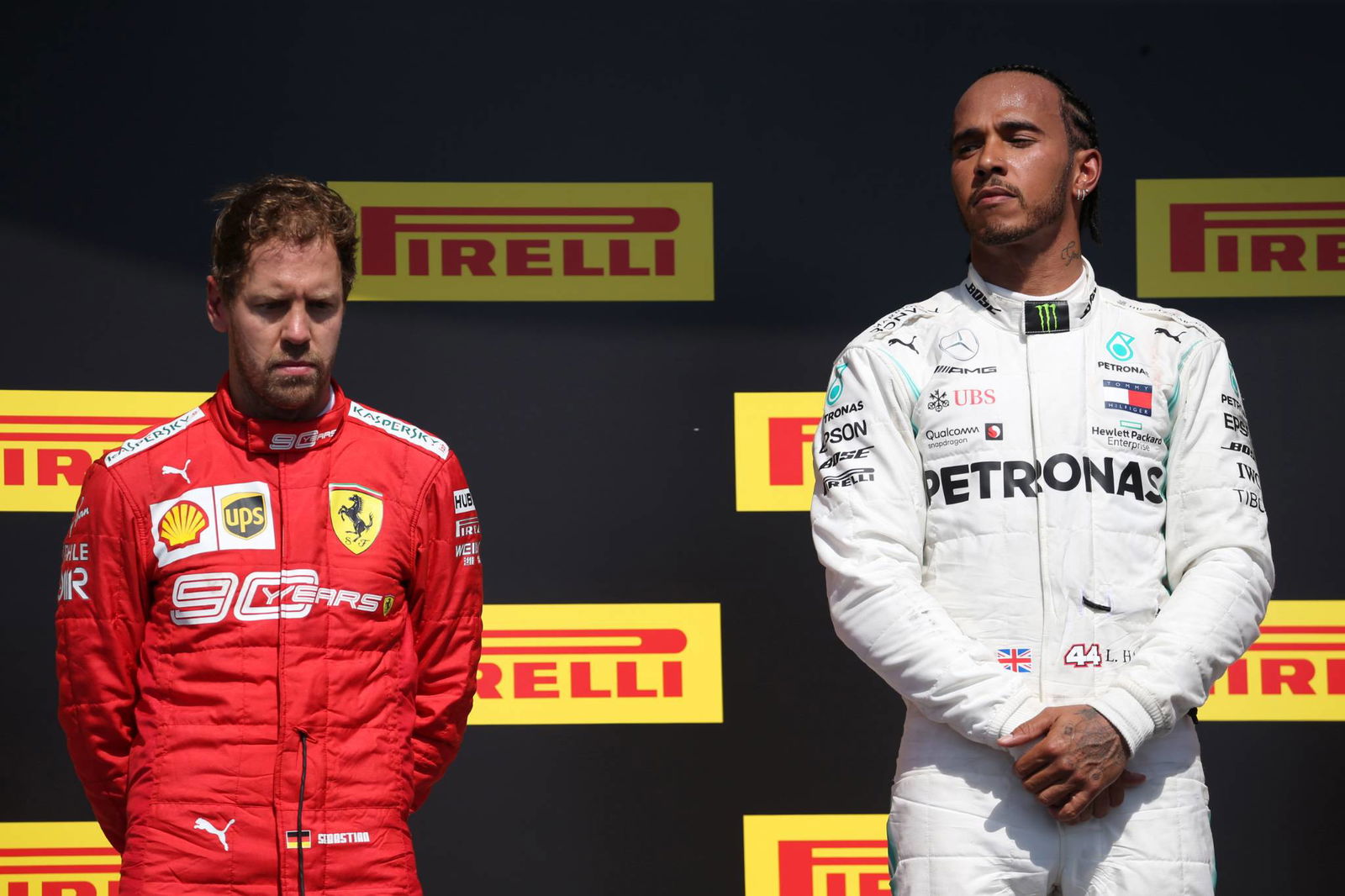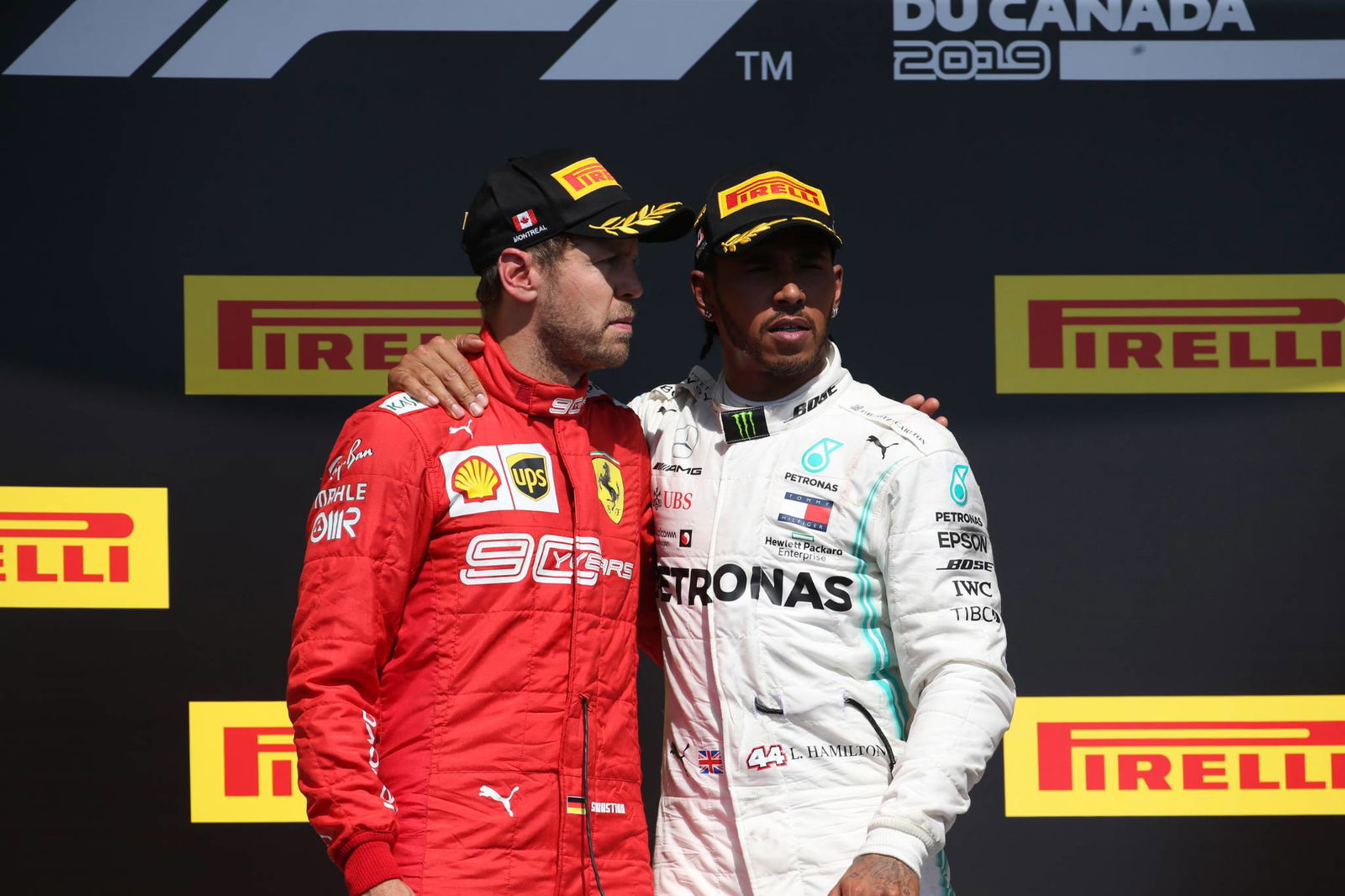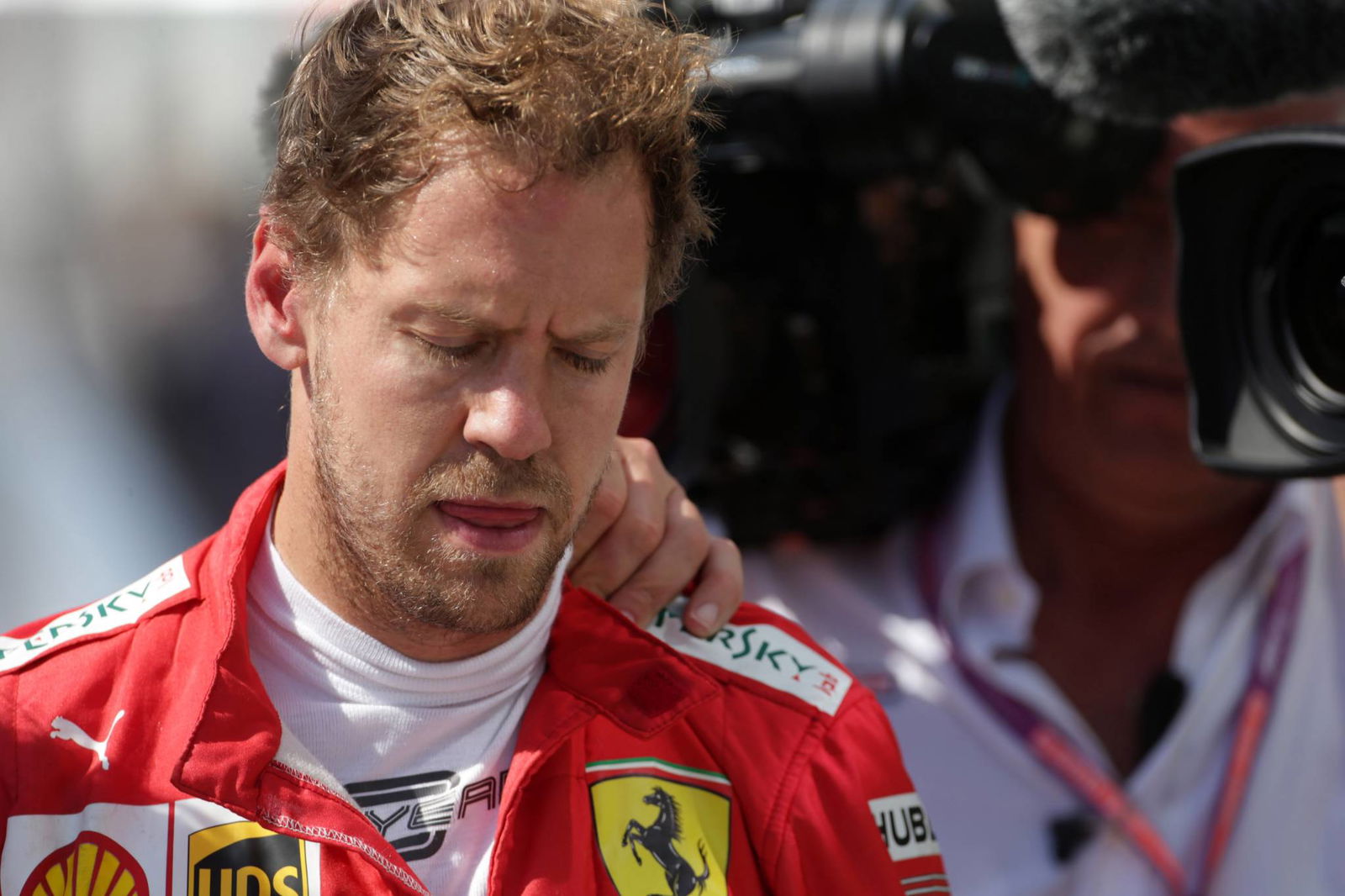2019 F1 Canadian GP conclusions: Montreal penalty mess sets precedent
The seventh round of the 2019 Formula 1 season, the Canadian Grand Prix, will unfortunately be remembered for all the wrong reasons.
An unpopular time penalty robbed Sebastian Vettel of a much-needed and arguably deserved victory in Canada. Instead, it handed second-place driver Lewis Hamilton an additional boost in his hunt for a sixth world title and served as a concerning precedent.
Here are the main talking points from the Canadian Grand Prix…

The seventh round of the 2019 Formula 1 season, the Canadian Grand Prix, will unfortunately be remembered for all the wrong reasons.
An unpopular time penalty robbed Sebastian Vettel of a much-needed and arguably deserved victory in Canada. Instead, it handed second-place driver Lewis Hamilton an additional boost in his hunt for a sixth world title and served as a concerning precedent.
Here are the main talking points from the Canadian Grand Prix…
Racing the biggest loser from penalty mess
There is only one place to start. THAT penalty.
In a year so far dominated by Mercedes, Ferrari finally looked set to kickstart its campaign and liven up a season that was verging on turning into something of an anti-climax after just six races. But a controversial penalty decision enabled Hamilton to claim the victory spoils, not the driver who crossed the line in first place.
Vettel, under increasing pressure from Hamilton behind, lost control of the rear of his car at Turn 3, ran wide over the grass and appeared to shut the door on Hamilton upon returning to the track. He was subsequently hit with a time penalty which seemingly everybody - barring the Montreal stewards - disagreed with.
The response was met by booing from the crowd during the podium presentation, an understandable strop from Vettel, and a social media outrage. While the debate rages on, ultimately, a penalty is a penalty and the stewards laid out its reasoning for how it had followed the letter of the F1 law, despite the overwhelming sense that an injustice had just occurred.
Aside from Vettel and Ferrari, the biggest loser here was racing. In recent years the notion of hard-but-fair racing has been a subject of hot debate and tested on numerous occasions but it now appears the line has well and truly been drawn. It has left more questions than answers over what is deemed acceptable. If the stewarding panel is to remain consistent, surely there is no going back for similar incidents of that nature in future.
So how does F1 move on from this instance and is there even a clear-cut solution? As is often the case, probably not. It remains very much a grey area of the regulations.

Much of the fury has been vented towards the stewards. At each Grand Prix the stewarding panel is made up of three FIA stewards - including one former driver (on this occasion ex-F1 driver and five-time Le Mans 24 Hour winner Emanuele Pirro) and one national steward.
It is important to note the tough challenge the officials face, leading Mercedes boss Toto Wolff to call for greater respect towards the stewards. Much like referees in football, stewards face an almost impossible task in having to make real-time calls over incidents. Naturally, some decisions will often lead to conflicting views.
It is not the first time, nor will it be the last, that a penalty outcome has split opinion. The biggest bugbear for many is the way in which the race outcome was determined by a penalty from what looked to be a relatively innocuous incident.
It is incredibly hard to compare such an instance with any other unless it was at the same corner of the same track, given the extensive variables - including but not limited to - conditions and circuit layout. Perhaps the way forward is a revisiting of the rulebook to seek firm clarification of what constitutes re-joining the track in a dangerous way.
There is an argument that the stewarding panel should be consistent at every race, but that is not without its own flaws. It opens up the potential for bias across the course of a 21-round season.
There will also be those that say the situation could have been avoided altogether with a gravel trap, as Vettel would have simply lost too much momentum - or become beached - and been instantly punished for his error. But that is a subject which risks opening up a another can of worms with regards to safety.
It is a shame that what was a great race will ultimately go down in history as being marred by controversy, rather than for being celebrated as an epic duel between two of F1’s all-time greats.


